The Siddiqi Lecture in Islamic Studies was launched in 2014 to bring top scholars in the field of Islamic Studies to the University of Tennessee, Knoxville and to foster a greater understanding of Islam in East Tennessee. We are grateful to our donors, Siddiqi Holdings of Knoxville, TN.
2025 Lecture – Mohamad Ballan
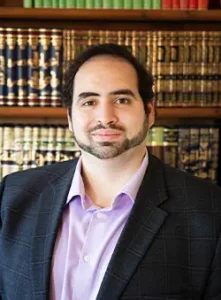
“Andalusi Peregrinations and Scholarly Circulations in the Late Medieval Islamic World“
September 9, 2025
6:30pm
Baker School of Public Policy and Public Affairs
Toyota Auditorium
1640 Cumberland Ave.
Knoxville, TN 37996
If you are unable to attend the event in person, it will be offered live online.
Co-Sponsors:
- Middle East Studies Program
- Department of Political Science
- Division of Access and Engagement
- Department of History
- Department of Sociology
- Marco Institute for Medieval and Renaissance Studies
Lecture Abstract:
This talk seeks to invite broader conversations about how intellectual and religious networks can provide a fruitful model for thinking about connectedness, the formation of identity, and the circulation of ideas. It examines how migration shaped the scholarly networks of the thirteenth- and fourteenth-century Mediterranean, with a particular focus on Andalusi émigrés. These individuals would reshape and redefine the political institutions, intellectual culture and social developments across the late medieval Islamic world, from Granada to Damascus. The emergence of new scholarly and political networks of Andalusis across the Mediterranean provides significant insight into the entangled histories of the individuals, groups, institutions, and political entities active in the late medieval Islamic world. This talk closely examines one particular case-study—the Maliki jurist Abū l-Walīd Muḥammad b. al- Ḥājj al-Tujībī (d. 718/1318) —to illustrate the importance of migration and mobility in the transformation of a family’s fortunes within the dynamic context of the thirteenth-century Islamic world.
Speaker’s Biography:
Mohamad Ballan, who is currently an Assistant Professor of History at Stony Brook University in New York, studies the intellectual, cultural and political history of late medieval Iberia and North Africa. He received his PhD from the Department of History at the University of Chicago in 2019, and has previously held appointments as a Junior Fellow at the Dartmouth Society of Fellows (2018–2019) and as a Mellon Faculty Fellow at the Medieval Institute at the University of Notre Dame (2021–2022). In both his writing and his teaching, Ballan highlights the interconnected histories of Europe, Africa and Asia through a close examination of social, intellectual and political networks. In his first manuscript, The Politics of Sovereignty in the Medieval Islamic West: The World of Lisan al-Din ibn al-Khatib (forthcoming with Oxford University Press in 2026), Ballan explores the phenomenon of the “scholar-statesman” – figures who ascended to the highest offices of state – through the life and works of Lisan al-Din ibn al-Khatib (1313–1374), the most prominent Spanish Muslim historian, chancellor and philosopher of the fourteenth century. His book situates this figure within a broader “community of letters,” a network of Muslim, Jewish and Christian scholars that extended from Seville to Damascus, in order to illustrate how these scholar-officials played a major role in reshaping the political culture, social hierarchies and conceptions of sovereignty in Nasrid Granada and beyond.
2024 Lecture – Mohammad Khalil
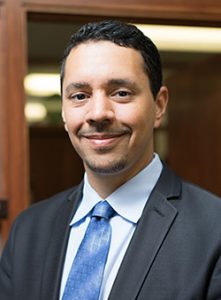
“A History of US Muslims”
Tuesday, Oct. 1, 2024
5:30pm
Lindsay Young Auditorium, Hodges Library Room 101
If you are unable to attend the event in person, you may watch the event live, by registering here.
Lecture Links
- Speakers Website
- Register/Stream Event on October 1, 2024
Co-Sponsors:
- Middle East Studies Program
- Department of Political Science
- Division of Access and Engagement
- Department of History
- Department of Philosophy
- Department of Sociology
Lecture Abstract:
Learn about the rich and long history of Muslims in the United States, from the founding of the country to the present day. Along the way, we’ll see how US Muslims have greatly influenced American culture and politics in ways that may seem unexpected.
Speaker’s Biography:
Khalil is the author of Islam and the Fate of Others: The Salvation Question (Oxford University Press, 2012) and Jihad, Radicalism, and the New Atheism (Cambridge University Press, 2018); and the editor of Between Heaven and Hell: Islam, Salvation, and the Fate of Others (Oxford University Press, 2013) and Muslims and US Politics Today: A Defining Moment (Harvard University Press and ILEX, 2019). He has published peer-reviewed journal articles and book chapters on various topics — from bioethics to early Islamic historiography to salvation discourse to jihad.
2023 Lecture – Sarra Tlili
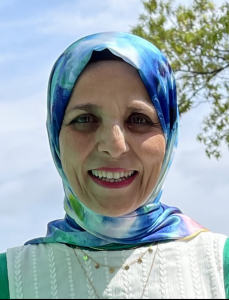
“Partners in Sacred History: The Nonhuman Other in Early Islam”
Wednesday, Oct. 18, 2023
5:30pm
Lindsay Young Auditorium, Hodges Library Room 101
Lecture Links
Co-Sponsors:
TBD
Speaker Biography:
Sarra Tlili is Associate Professor of Arabic literature at the University of Florida, Department of Languages, Literatures, and Cultures. Her main areas of research are animal and environmental ethics in Islam, Qur’anic stylistics, and tradition and modernity in Arabic literature. Her publications include Animals in the Qur’an, “All Animals Are Equal, or Are They? The Ikhwān al-Ṣafāʾ’s Animal Epistle and its Unhappy End,” and “From Breath to Soul: The Quranic Word Rūḥ and Its (Mis)interpretations.”
Lecture Abstract:
An ecologically attuned reading of the hadith shows that the early Muslim community consisted of both human and nonhuman agents. Stones reportedly started introducing Muhammad to his forthcoming prophetic role years before he received the divine message. During the Prophet’s emigration to Medina, a spider and two doves hid him and his friend from his pursuers, the former by weaving a net and the latter by placing a nest at the entrance of the cave where the two hid. Nonhuman beings’ roles were indeed multifaceted, as they contributed to political, social, and religious events and were treated as partners and as a source of inspiration. They were also at the receiving end of this partnership. The Prophet was consistently there for them as he was for his human companions. From this, one discovers the hadith’s heavily anthropomorphic nature and detects a clear effort to curb anthropocentric feelings. Whereas modern treatments of nonhuman agency tend to deemphasize the elements of rationality and intentionality to create a space that is more inclusive of nonhumans, narratives that highlight nonhumans’ contribution to Islam’s sacred history attribute to them emotions, intentionality, and rationality. Moreover, by consistently emphasizing the uprightness of the entire creaturely order while presenting humans and jinn as the only exception, one discovers that the hadith seeks to integrate humanity in the rest of creation.
2022 Lecture – Butch Ware
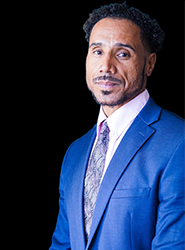
“Islam, Race, and Social Justice: Historical and Qur’anic Perspectives on
Black Freedom Struggle.”
Tuesday, Oct 11, 2022
5:30 pm
Strong Hall 101 (live and also webcast)
Lecture Links
Co-sponsors:
Departments of Africana Studies, History, Political Science
Interdisciplinary Program in Middle East Studies
Haslam College of Business
Bio:
Professor Ware, Associate Professor of History at the University of California, Santa Barbara, is a historian of Africa and Islam. He is the author of The Walking Qur’an Islamic Education, Embodied Knowledge, and History in West Africa (UNC Press, 2014) and co-author of Jihad of the Pen: Sufi Thought in West Africa (American University in Cairo Press, 2018).
Event Abstract:
The Qur’an, though Arabic in language, is largely a book about black people, with most of its named characters living in and around the ancient Nile Valley. This is often overlooked by scholars of Islamic thought (from within the tradition and without) because the Qur’an is – in fact – a colorblind Book. There are no mentions of skin color or hair texture associated with any of the Qur’an’s human characters. The partial exception to this rule is the name Adam, which meant black-skinned in ancient Arabic.
Though it is without racial marking, the Qur’an offers powerful material for reflection on racism and racial justice. In its telling of the timeless cosmological drama, Satan is the first creature to claim superiority on the basis of bodily composition and lineage origin. The devil becomes the first racist at the moment when he refuses to bow to Adam. In this space of reflection, racism is a spiritual sickness thrust upon humanity by an avowed enemy who causes us to see one another with the same contempt that he has for all.
Black Muslims – in the continent and diaspora have mined Islamic sources of reflection on race and justice to make powerful spiritual and social interventions. This talk will focus on three interrelated moments in the Afro-Islamic struggle against white supremacy.
1. The Muslim anti-slavery movements of late 18th-century West Africa and the Diaspora
2. The Sufi anti-imperialist movements of late 19th-century West Africa
3. The mid-twentieth-century racial justice ideology formulated by Malcolm X.
2021 Lecture – Stephennie Mulder
“The Architecture of Coexistence: What Medieval Islamic shrines can tell us about Modern Iconoclasm”
Thursday, Oct 7, 2021
5:30 pm
via Zoom
Lecture Links
Event Abstract:
In the past decade, with the rise of cultural heritage destruction by Islamist extremist groups like the Taliban and ISIS, it has become common for media representations to associate Islam with iconoclasm. Indeed, in 2014-2015, ISIS claimed they were following in the footsteps of the Prophet Muhammad when they destroyed ancient sites in Syria and Iraq, capturing headlines around the world. Yet few observers stopped to consider an obvious fact: that the ongoing presence of ancient sites throughout the Islamic world can only mean that they had, in fact, been cared for and preserved by Muslims over the course of many centuries. While ISIS’s destruction of famous ancient sites dominated the headlines, little attention was paid to ISIS’ more widespread destruction of Islamic holy sites, including shrines devoted to prophets, sufis, and other saintly figures revered by Muslims for centuries. Their ongoing survival can only mean that the iconoclasm of contemporary extremist groups like ISIS – despite their claim to represent a medieval reality – is in fact a very modern phenomenon. In this lecture, Dr. Stephennie Mulder will explore a group of shrines devoted to the family of the Prophet Muhammad in Syria, showing how they survived precisely because they have always been sites for inter-sectarian and interfaith exchange and coexistence.
2020 Lecture – Shahzia Sikander
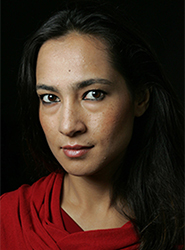
“A Conversation about Islamic art with Shahzia Sikander”
November 12, 2020
5:30 pm – 7:30 pm
via Zoom
Lecture Links
2019 Lecture – Omid Safi
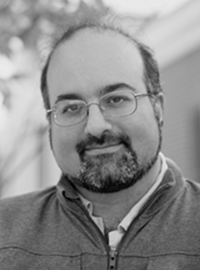
“A Love Supreme: Rumi’s Path of Islamic Spirituality“
Tuesday, October 22, 2019
5:30 pm – 7:30 pm
Strong Hall 101
Lecture Links
2018 Lecture – Zareena Grewal
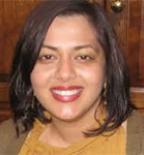
“The Quran in the American Imagination”
Thursday, October 18, 2018
5:30 pm – 7:30 pm
Strong Hall Auditorium (Room 101)
Lecture Links
